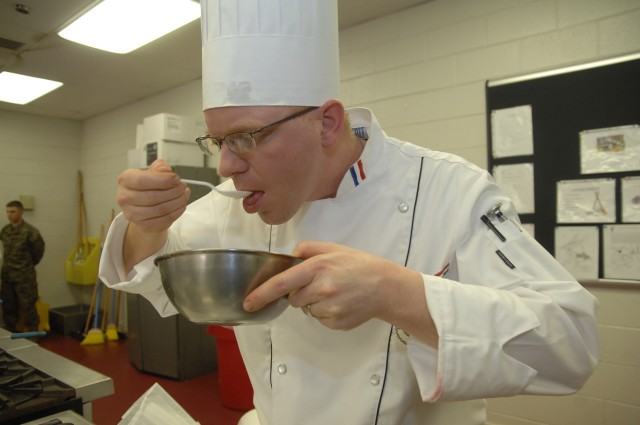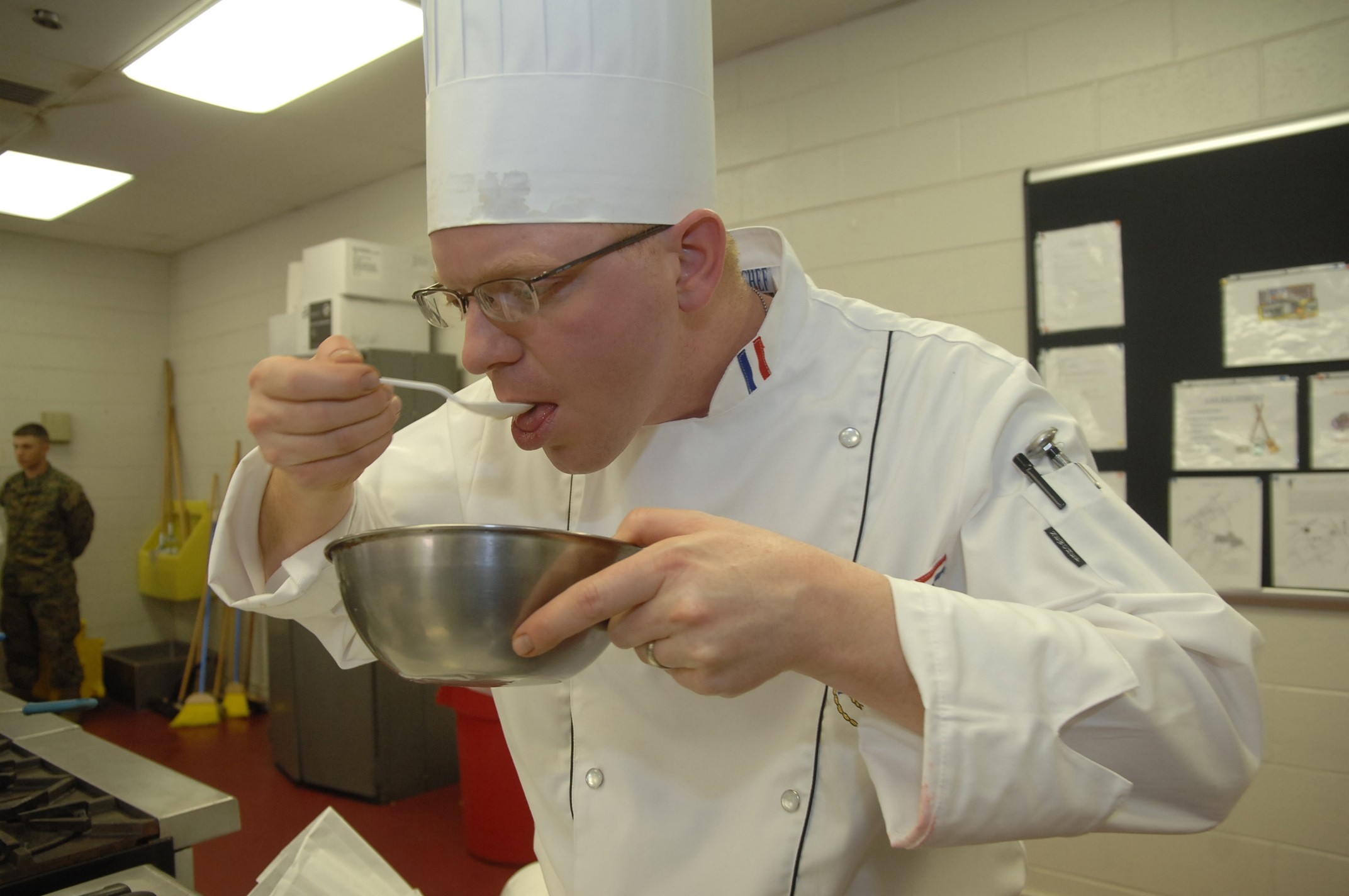Fort Lee, Va. (March 12, 2008) -- If the general looks sharp in his uniform, they'll beam with pride.
If the admiral's official quarters are clean and orderly, they'll gladly take credit.
And if the ambassador to Japan is floored by the hors d'oeuvres, the hospitality knockout is all theirs.
Welcome to the world of the enlisted aide, where military members take on the little things like preparing uniforms, cooking and managing a household so that admirals and generals can concentrate on the bigger things.
"Enlisted aides are authorized to relieve general flag officers of the minor tasks and details that, if performed by the officer, would be at the expense of the officer's official and primary military duties," said Staff Sgt. David Baisden, a former aide and an instructor/writer in the Enlisted Aide Training Course taught at Fort Lee. "We don't want the admiral or general who has to plan a deployment to Iraq having to think about something like, 'I've got so and so coming for a dinner party, what do I need to cook' How do I set that up''
"That's what we do."
Aides are flag officers' right-hand men and women. They perform a myriad of duties to include planning social events, providing administrative assistance, purchasing and preparing food, running errands and providing security for the officer's quarters. They go about those duties having mastered the world of multi-tasking, having developed an ability to think quickly on their feet and having become proficient at personalizing every task they perform for whom they work.
That's what they do.
Baisden and others in this field, however, are quick to note that enlisted aides are not servants, dislike the term 'butler' and disdain the notion that they perform duties such as cleaning dog poop or babysitting.
"I heard stories that you would have to clean up after dogs, kids, stuff like that," said Army Sgt. 1st Class Jesus Camacho, a fresh six months into a stint with a three-star general. "In reality, that's not what you do. Your sole job, your sole purpose is to take care of the general, not his kids, not his dogs or anything like that."
Sgt. Matthew Flemister, aide to a general, said the job of an enlisted aide is closer to a personal assistant.
"It's half personal assistant, half personal chef and a couple of other jobs as well," he said.
Most all enlisted aides are food service specialists who are in the grades of E-5 and above. They are required to attend Fort Lee's 30-day Advanced Culinary Course and its 10-day Enlisted Aide Training Course. The latter teaches everything from uniform preparation to table setting. About 100 students complete the courses on an annual basis.
When they graduate, the aides move on to fill some of the 300 enlisted aide slots within the Department of Defense. Three-star flag officers are authorized one aide and four-stars are authorized two. One and two-star flag officers may or may not have enlisted aides. It largely depends on the position.
Those flag officers who are authorized enlisted aides are likely to travel extensively and hold official social functions at their quarters on a regular basis. Their world is a fast-paced one and the enlisted aide helps them to navigate it.
"Without the aide, it would be so hard for them to carry out their plan of the day, be it entertaining or be it conducting business," said Marine Gunnery Sgt. William Allison, aide to a three-star. "....There are so many little things that an aide has to do successfully to help make the general successful."
One of those little things is making sure uniforms look their best. It may be a small task but an important one. Flemister said he feels a sense of satisfaction and personal ownership when the boss looks good in public or in front of the media.
"I know I put that uniform together," he said. "I squared him away for the day. He looks good because, in some small part, I did my job right."
Although uniform preparation is vital, it's not the most exciting part of the job, said several of the aides. The kitchen, they said, is where they are afforded the opportunity to showcase their creativity and core skills.
"You're cooking on a much higher level, because our clientele demands that," said Flemister.
Baisden said the most satisfying moment occurs when a guest takes a bite of one of his culinary creations, tilts their head, rolls their eyes backward and gasps in a moment of genuine bliss.
"That's when you know they truly appreciate what you've done," he said.
That appreciation can resonate beyond the dinner table and may help to affect the powerful and influential, said Army Sgt. 1st Class Rene Marquis, a nine-year enlisted aide.
"A lot of our senior leaders entertain and do business at the dinner table," he said. "Some of the people that we entertain may be our allies or they may be potential allies."
That undoubtedly underscores the importance of the enlisted aide. For the aides themselves though, every medal they put on a uniform, every table they set and every errand they run will help to make them better culinary professionals.
"All of it makes you a more well-rounded chef when you look at the big picture," said Flemister. "I see smaller details now that I never saw before."
But in the big picture, it's all about supporting the flag officer in whatever he has to accomplish.
"For the services that we provide," said Marquis, "I like to tell people that when the boss goes to work in the morning, and he's in a good mood, I'd like to think that I was a part of that. If I wasn't there to help him, assist him and aid him, he may have a bad day, and that attitude might carry on to the office."
That's what they do.


Social Sharing